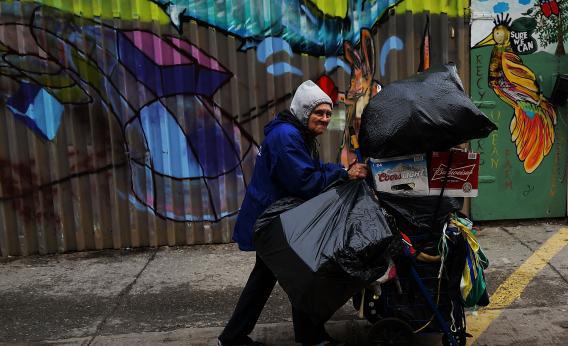Across the United States, people are living longer than ever. But there’s one group that’s dying a lot quicker, and nobody knows why. As Monica Potts details in a fascinating piece for the American Prospect, the life expectancy of white women who don’t graduate high school has “declined dramatically over the past 18 years.” White men who drop out of high school have lost three years in that time period. Women have lost five. They used to live to an average of 79, but now they die around 73. And despite the persistent life expectancy gap between black and white Americans, black women who drop out are living longer than ever—now, even longer than white women do.
Potts speaks with a cluster of researchers who are trying to tease out the variables contributing to the earlier deaths of these female dropouts but finds no firm answers. It could be that “staying in school teaches people to delay gratification,” but that calculus hasn’t changed in the past two decades. White women are more likely than black women to “smoke and drink and abuse prescription drugs like OxyContin and street drugs like meth,” but it’s unclear why that’s the case. Women who don’t graduate from high school are also the least likely of any demographic group to hold a job; when they do work, it’s low-paying, and they’re more likely to drop out to raise kids than other people. Potts cites a study that found that holding a job was even more important to longevity than other signs of financial security. As one researcher hypothesized, jobs could connect women to social networks and even give them a “sense of purpose” that could help extend their lives, but as Potts notes, that’s a pretty “squishy” justification that hasn’t been fully explored. And though researchers know that female mortality is spiking across the South, they don’t know how location contributes to the deaths. One possibility is that, in “low-income white communities of the South, it is still women who are responsible for the home and for raising children, but increasingly they are also raising their husbands.” Meaning that these white women are taking care of their families, but no one is taking care of them.
Reading the piece, I wondered if the spike in mortality for this group of women could be attributed to the rise in education attainment for women across the board. White women who drop out of high school are dying sooner, yes, but it’s also increasingly rare for them to drop out at all. At a time when Americans are more likely to graduate from high school than ever, not finishing school could leave you a lot worse off than your peers. There used to be a path to employment and a working wage even without a high school degree. But now, if you drop out, you’re not just at the bottom—you’re at the very, very bottom. (When researchers look at the longevity of white people who have graduated from high school but don’t go on to college, they’ve only lost one year of their lives.) And this might leave the smaller pool much more vulnerable to all kinds of things that contribute to early death.
I asked Potts about that possibility, but like all the other variables she assesses in the piece, she doesn’t think it provides a clear-cut answer to the problem. “I asked the researchers about the fact that the cohort is shrinking, and they all thought it was more complicated than saying that the women who don’t graduate from high school now were just always the most worst off,” Potts told me. Though white women are the least likely of any demographic group to drop out of high school, drop out rates are decreasing across racial groups, for both women and men. It could be that “being part of a shrinking group makes them less visible to society,” Potts says, “so it’s even worse than it ever would have been.”
Across the country, the most serious gap in longevity exists “between the most educated whites and the least educated blacks,” and that’s nothing new. That gap is closing as black Americans are gaining years—they have a lot of ground to make up—while whites are losing them. That’s not exactly how we’d like to resolve economic and racial inequality in the United States.
